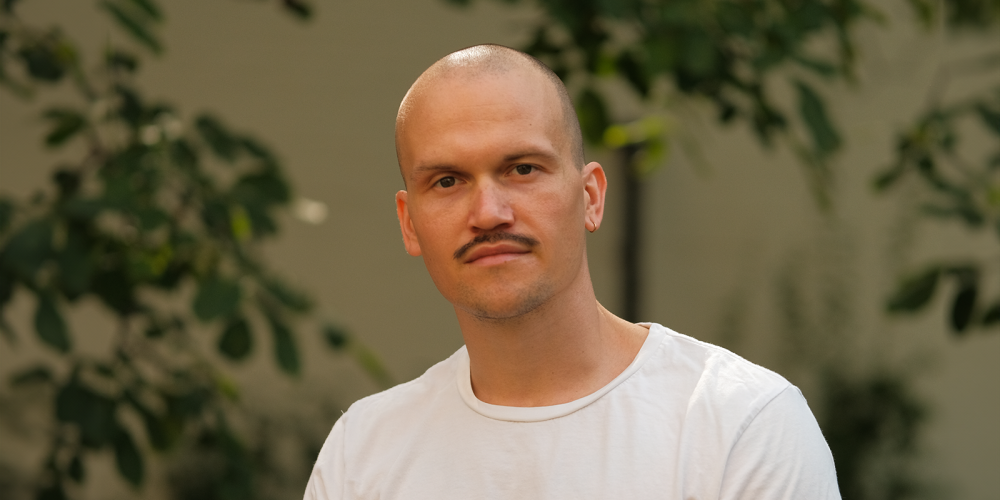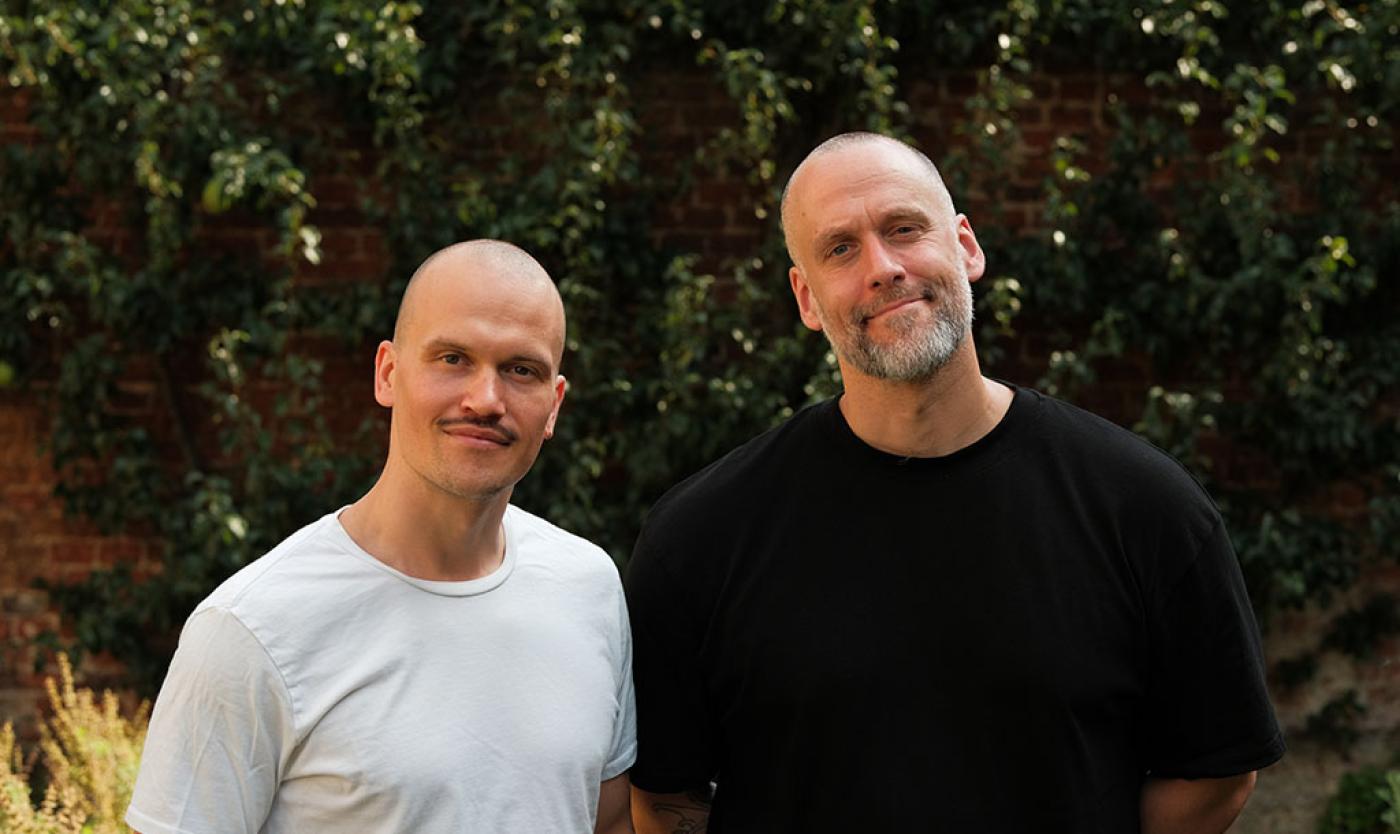
With Onbespreekbaar, Jef Willem and his close friend Nicolas Overmeire are working to break the taboo around mental health. Through podcasts and live talks, they create space for honest conversations. On 15 May, Jef is coming to VUB to talk with students about performance anxiety, exam stress and loneliness.
Are you a VUB student? Join the talk (in Dutch) on 15 May!
How did Onbespreekbaar come to life?
Jef Willem: “Nicolas and I have our roots in nightlife. He worked as a bouncer, I was a DJ. When the COVID pandemic hit, everything shut down and we suddenly had nothing to do. A few years before, I had spoken openly about my own depression – something that was still very taboo back then. Because of that, people found it easy to talk to me about their own struggles. During the lockdowns, we kept hearing from people who were mentally struggling. So one day we decided to record a conversation between the two of us about mental health. That was the start. We never imagined it would grow the way it did.”
Who’s your audience now? Mostly young people?
“In the beginning, yes. We were very active on social media, and that’s where young people found us. But our audience is getting older. These days, we often get invited to give talks to people over 40. That makes sense: in that generation, it’s still very taboo to talk about anxiety or dark thoughts. Young people are much more open, even in large groups. They talk about these things in a very matter-of-fact way. I heard Shania Gooris on Expeditie Gooris say she sometimes feels overwhelmed or inferior – and nobody made a big deal out of it. That’s real progress.”
Does this openness help improve young people’s mental health?
“Absolutely. Being able to talk about it is essential – I can’t stress that enough. But at the same time, constant over-analysis of your mental health can actually make things worse. If you're always checking in with yourself, you’ll end up feeling worse. There needs to be a balance. You shouldn't suppress your emotions, but over-focusing on them isn’t healthy either.”
Still, we keep hearing alarming reports about young people’s mental health. What’s your view?
“With everything going on in the world – from Gaza to climate change – we’re living in a time of heightened awareness. Philosopher Ignaas Devisch calls it an ‘empathy overload’. We feel too much, we consume too much information, and it makes us feel like the world is falling apart. That definitely affects young people’s mental health. But I think it will stabilise again. Doom and gloom thinking has always existed – only the form it takes has changed.”
Social media plays a big role in that, right?
“Definitely. Fifty years ago, we might not even have known there was a war going on. Now, we get real-time updates on every single development in Gaza. That overstimulates our empathy.”
What’s your advice to young people overwhelmed by all that empathy?
“I always ask myself: can I do anything about this? Will my emotional involvement change the situation? If I’m honest, the answer is no. That might sound selfish to some, but I can’t fix the world’s problems. And constantly following every update drains my energy. I’d rather use that energy for Onbespreekbaar, where I can actually make a difference.”
Are there other things young people are struggling with?
“On a bigger scale, I think many young people feel stuck between two forces: the search for meaning and the pressure to perform. Older generations didn’t really question what was expected of them. Today’s youth are much more critical. They ask: do I even want to join the rat race? And if not, then what do I want? That’s a good thing – but it also means they face endless choices. And the more choices you have, the more doubt you feel. Is this the right path? What if I make the wrong decision? That fear can lead to paralysis. You see it everywhere – even in dating. Tinder promised to make things easier, but now there are more singles than ever.”
When you were the age of our students, were you thinking about your mental health?
“No, not really. I’ve been seeing a psychologist since I was young, but I wasn’t doing it in a constructive way. I just went for an hour, slapped a plaster on the wound, and went on with my life. It wasn’t until I hit a major depression a few years later that I realised I had to take mental health seriously. That’s when things changed. And just to be clear – that’s not a dig at psychology. I’ve been with the same therapist for 20 years. But at a certain point, I had to stop just talking about problems and actually do something about them.”
In the past, Onbespreekbaar got criticised for talking about mental health without a psychology degree. Now a university is inviting you to speak to its students. Are you proud of that?
“I absolutely embrace the fact that we don’t have a degree – because we don’t need one for what we do. We build bridges. We connect people who are struggling with those who can help. And honestly, that whole attitude of ‘you’re not qualified to talk about mental health’ says a lot about how society views emotions. We medicalise sadness way too quickly. But the more people become fluent in the language of mental health, the better off we all are.”

Jef en Willem van 'Onbespreekbaar'
Jef Willem’s listening tip
“In our third season, we focus on dealing with negative behaviour from others, recognising signs of manipulation, and learning how to set boundaries. These are our most listened-to episodes – especially among young people. The key idea behind them is that we can’t control how others act, but we can control how we respond. And that principle applies to so many areas of life.”